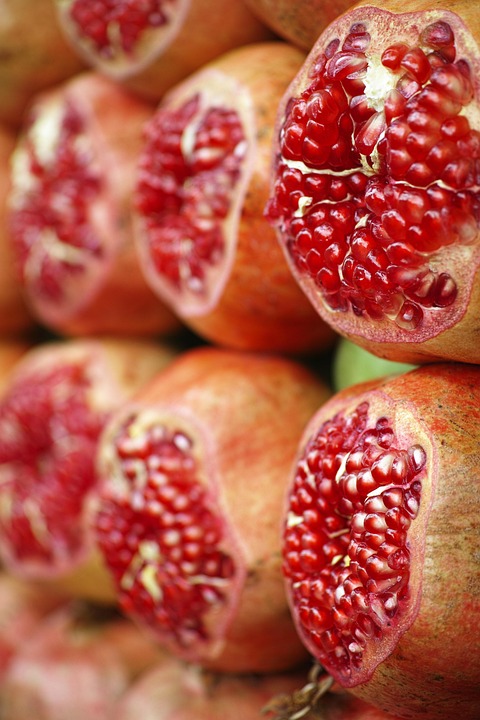Introduction
Ascorbic acid, also known as vitamin C, is a powerful antioxidant that plays a crucial role in preventing oxidation and maintaining food quality. Oxidation is a chemical reaction that occurs when oxygen interacts with food, leading to deterioration in color, flavor, texture, and nutritional value. Ascorbic acid works by scavenging free radicals and inhibiting the formation of harmful compounds, thus extending the shelf life of food products. In this report, we will explore how ascorbic acid prevents oxidation and its impact on food quality.
Understanding Oxidation in Food
What is Oxidation?
Oxidation is a natural process that occurs in all living organisms and is accelerated by exposure to air, light, heat, and enzymes. In food, oxidation leads to the degradation of lipids, proteins, and carbohydrates, resulting in off-flavors, rancidity, discoloration, and nutrient loss. This process is particularly problematic in perishable foods like fruits, vegetables, meats, and dairy products.
Effects of Oxidation on Food Quality
Oxidation can have a significant impact on the sensory properties, nutritional content, and safety of food products. For example, the oxidation of fats can lead to the development of off-flavors and odors, while the oxidation of vitamins and antioxidants can reduce their efficacy. In addition, oxidation can promote the growth of harmful bacteria and mold, leading to food spoilage and foodborne illness.
Role of Ascorbic Acid in Preventing Oxidation
Antioxidant Properties of Ascorbic Acid
Ascorbic acid is a potent antioxidant that can donate hydrogen atoms to neutralize free radicals, which are highly reactive molecules that can damage cells and tissues. By scavenging free radicals, ascorbic acid helps prevent oxidative stress and reduce the rate of oxidation in food products. This antioxidant activity makes ascorbic acid an essential ingredient in food preservation and processing.
Mechanism of Action
Ascorbic acid works through multiple mechanisms to prevent oxidation in food. It can regenerate other antioxidants like vitamin E and glutathione, which further enhance its antioxidant capacity. Ascorbic acid also chelates metal ions that catalyze oxidation reactions and inhibit the formation of harmful compounds like acrylamide and nitrosamines. Moreover, it can stabilize pigments and flavors, preserving the sensory qualities of food products.
Applications of Ascorbic Acid in Food Industry
Food Preservation
Ascorbic acid is widely used in the food industry to extend the shelf life of perishable products. It is added to fruits and vegetables to prevent browning and maintain their color and texture. Ascorbic acid is also used in meat products to inhibit lipid oxidation and preserve their freshness. In baked goods, it can improve dough elasticity and enhance the volume and texture of the final product.
Fortification and Enrichment
Ascorbic acid is often added to fortified foods and beverages to enhance their nutritional value. It is used in breakfast cereals, fruit juices, and dairy products to increase the vitamin C content and provide additional health benefits. As a water-soluble vitamin, ascorbic acid is easily absorbed by the body and plays a crucial role in supporting immune function, collagen synthesis, and iron absorption.
Impact of Ascorbic Acid on Food Quality
Improved Shelf Life
By preventing oxidation and reducing the growth of spoilage microorganisms, ascorbic acid helps extend the shelf life of food products. This not only reduces food waste but also ensures that consumers can enjoy fresh and nutritious foods for a longer period. Ascorbic acid is particularly effective in preserving the quality of fruits, vegetables, and meat products during storage and distribution.
Enhanced Nutritional Value
Ascorbic acid plays a vital role in maintaining the nutritional quality of food products by protecting vitamins, minerals, and antioxidants from degradation. This ensures that consumers receive the full benefits of essential nutrients and bioactive compounds. Ascorbic acid also contributes to the stability of fortified foods, ensuring that they retain their nutritional potency throughout their shelf life.
Conclusion
Ascorbic acid is a versatile ingredient that offers numerous benefits in preventing oxidation and maintaining food quality. Its antioxidant properties help preserve the sensory properties, nutritional content, and safety of food products, making it an indispensable tool in the food industry. By understanding the role of ascorbic acid in food preservation and processing, manufacturers can develop innovative products that meet consumer demand for fresh, flavorful, and nutritious foods.


